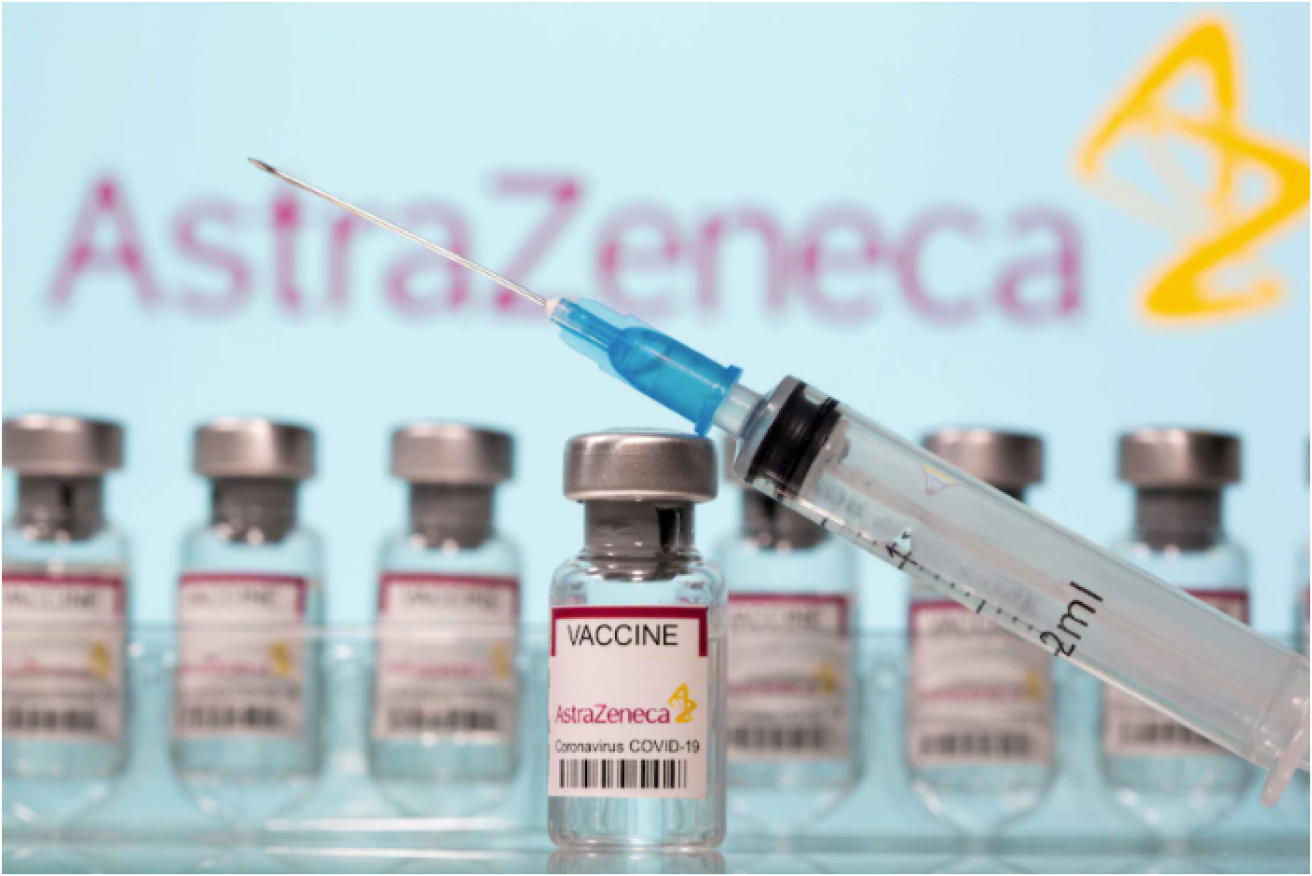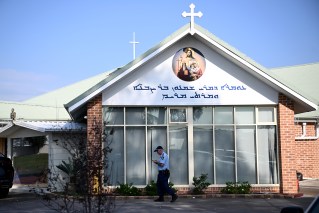Experts suggest ‘rethink’ to extend AstraZeneca to young people, give second dose earlier


The government should rethink its recommendations around AstraZeneca, in order to build protection against the Delta strain. Photo: Reuters
The government should change its stance on AstraZeneca and open it up to younger Australians or shorten the time between doses, in a bid to quickly build up the country’s defence against the Delta strain.
The recommendations come from leading public health experts, as rolling new cases force lockdowns in Sydney and Darwin, and new restrictions in Brisbane and Perth.
Health Minister Greg Hunt on Sunday said the government was open to changing its advice if “future circumstances” shift and Australia faces a sudden uptick in COVID risk.
Infectious diseases expert Professor Peter Collignon said Australia might have to change its approach and allow younger people to access AstraZeneca – a move undertaken by England.
“What we’re doing now is sensible. But if things change from a supply point of view, or the amount of virus spreading, then we may change our criteria,” Professor Collignon said.
The math for extending AstraZeneca
The AstraZeneca vaccine has been approved by Australia’s Therapeutic Goods Administration for all aged over 18.
However, a recommendation was made to restrict it to those above 60, due to very rare cases of blood clots being more prevalent in those under that age.
TGA advice in mid-June was the thrombosis and thrombocytopenia syndrome (TTS) presented in 3.1 cases per 100,000 of people under 50, but just 1.4 per 100,000 in those aged 60 to 69.
Pfizer is recommended for those under 60, and most states have opened up vaccinations for those aged over 40.
But relatively lower supplies of Pfizer means most people under 40 are not able to access vaccines under the current roadmap.
At the same time, rising vaccine hesitancy and concerns about TTS among older Australians has seen reports of clinics throwing away AstraZeneca doses due to lack of demand.
Millions of young people worldwide have been vaccinated with the AstraZeneca shot.
The Australian Technical Advisory Group on Immunisation (ATAGI) said it conducted a risk-benefit analysis on restricting AstraZeneca from those under 60, saying their risk of TTS may be higher than their risk of catching COVID, due to Australia’s low near-elimination of the virus.
“ATAGI emphasises that this advice is specific to the context that there is currently no or limited community transmission in most of Australia,” it said on June 17.
However, epidemiologists say the risk environment is changing – with Sydney, Darwin, Brisbane, Perth and Melbourne on alert – and advice around AstraZeneca could change to protect as many as people as possible, as we approach the depths of winter.
“If the risk has changed, the benefits become more apparent than the risks,” Professor Collignon, of the Australian National University, told The New Daily.
He said older Australians and those with factors like underlying health conditions should remain the priority, but suggested age limits could be shifted to let more younger people access AstraZeneca, if they wished.
“If people have been informed about the risk, and you make a decision to have it, I don’t see any reason why not,” Professor Collignon said.
Melbourne’s CSL is currently producing more than one million weekly doses of AstraZeneca.
Mr Hunt said on Sunday that 404,000 AstraZeneca doses were given last week.
The vaccination race is really on now
Professor Mike Toole, epidemiologist with the Burnet Institute, suggested the gap between AstraZeneca doses – currently 12 weeks – could be shortened, to get more people fully vaccinated, sooner.

Melburnians trickled into Victoria’s mass vaccination hub at the Royal Exhibition Building when it first opened in mid-April.
“The data from the UK is very clear, one dose of either vaccine only provides around 30 per cent protection against the Delta strain. That’s quite scary, so people need to get their second doses,” he told TND.
“One thing we might consider is reducing the period between two doses. The UK did that because of Delta. In over-50s, their gap between doses is eight weeks.”
Professor Toole said keeping a longer gap between doses meant more people could be protected with at least one shot, but he claimed that the more deadly Delta strain required having more people fully vaccinated earlier.
“When it was the Alpha strain, it made sense to have more people having first doses. Now it’s Delta, we need people with full protection,” he said.
Professor Collignon agreed.
“Right now, we’re looking OK. But if we were going to change anything, I’d lower the age for AstraZeneca and decrease the dosing interval,” he said.
Professor Catherine Bennett, chair in epidemiology at Deakin University, said the unfolding situations in Sydney and Darwin may influence any further change.
“The TGA will be looking at it this week. Things have shifted in the last week. A week ago, we were in a very different world,” Professor Bennett told TND.
“We’re probably still better off holding our current interval to get the full benefit of the vaccine, but if the Delta continues to spread across states, that variant isn’t as responsive to first dose. It really needs the second dose to have the full benefit.”
In a column for TND, Burnet Institute director Professor Brendan Crabb said the 60+ recommendation for AstraZeneca was “understandable”, but the latest outbreaks had changed the risk environment.
“Given we are still some way off large amounts of alternate vaccines, our attitude to AstraZeneca needs a rethink,” he wrote.
‘Difficult decisions’
Mr Hunt said the ATAGI was “in a process of continuous review” of COVID vaccines, and didn’t rule out ATAGI making further advice to change the recommendations.
“Where [ATAGI] have seen changes on the risk basis, they have recommended them,” he told a press conference on Sunday.
“Difficult decisions have been made, that they have recommended and we have adopted and we will continue to do that. I
“f future circumstances mean that risk changes in one direction or another, then we will enforce and adopt the recommendations.”
Mr Hunt is among a large list of politicians and health officials – including Julia Gillard, Gladys Berejiklian, Brett Sutton, Brendan Murphy and Richard Marles – to receive the AstraZeneca shot.








